Those who are truly interested in community-building (rather than striving to enhance their own status through resource-exhausting displays of material wealth) might want to take note of two ways city folks play in water.
This idea occurred to me while walking through Tower Grove Park in St. Louis last week. Dozens of children splashed in a modest shallow pool fed by a fountain. As you can see from this (expandable) photo, the children were being closely watched by their parents. It was a communal celebration on a warm night. No one was there to display his or her financial assets. This sort of community-building occurs in many cities every day.
Sometimes a municipality builds a big pool rather than a small pool and fountain, with the same result (as seen below, a photo of the Maplewood, Missouri municipal swimming pool. Anyone can join for a relatively modest fee.
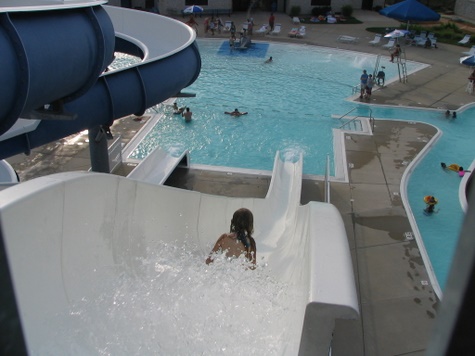
This is a photo of my seven-year old daughter going down a water slide into a municipal pool. You might be thinking, “What kind of parent are you to allow your daughter to share a swimming spot with strangers?” What kind, indeed! The same kind that knows that strangers can get along. We can even share beaches!
As shown in the above photos, people of modest means can actually enjoy playing in water quite well when they share. And they can share and they do share, just as they did decades ago while I was growing up in a middle-class neighborhood. In fact, almost no one had their own pool (other than inflatable pools for infants). Swimming was always done as a community only a few decades ago. And (believe it or not), government was competent at running swimming pools (and libraries and fire departments). The bottom line is that people shared swimming spots and yet the world did not fall apart. And because people shared, there wasn’t as much wasting of natural resources (the water, the chemicals, the electricity to run the filters, the pool companies using fuel to drive out to do maintenance, and even the energy used to heat these pools in October).
Compare the park fountain at the top of this post to the following photo I took two days ago while flying over Boston suburbs. Many of these houses have their own swimming pools (none of them being used on this hot day while this photo was taken). Based on their decisions to build their own pools, none of these people were interested in sharing swimming spots. “Come on over,” I can hear them saying to their private friends. “We have our own pool. No strangers are allowed.”
I’m seeing it everywhere these days: resource-wasting displays of wealth that have been acquired in an attempt to elevate social status. In these days of more expensive oil (though it’s still cheap), SUV’s will undoubtedly once again become an item of special status for the rich, as the middle-class decides that it can’t keep up with the rich. They won’t be able to afford the oil.
As cheap oil disappears, we’re going to put most of those middle-class pretenders back in their place in many ways. So much of what they thought they “needed,” including those pools in their own back yards, will disappear. At that point, luxury items like unnecessarily large vehicles and unnecessarily private swimming pools will once again come to be displays of real status, real power and real wealth. The rich can once again breathe easy that they will once again come to look rich.

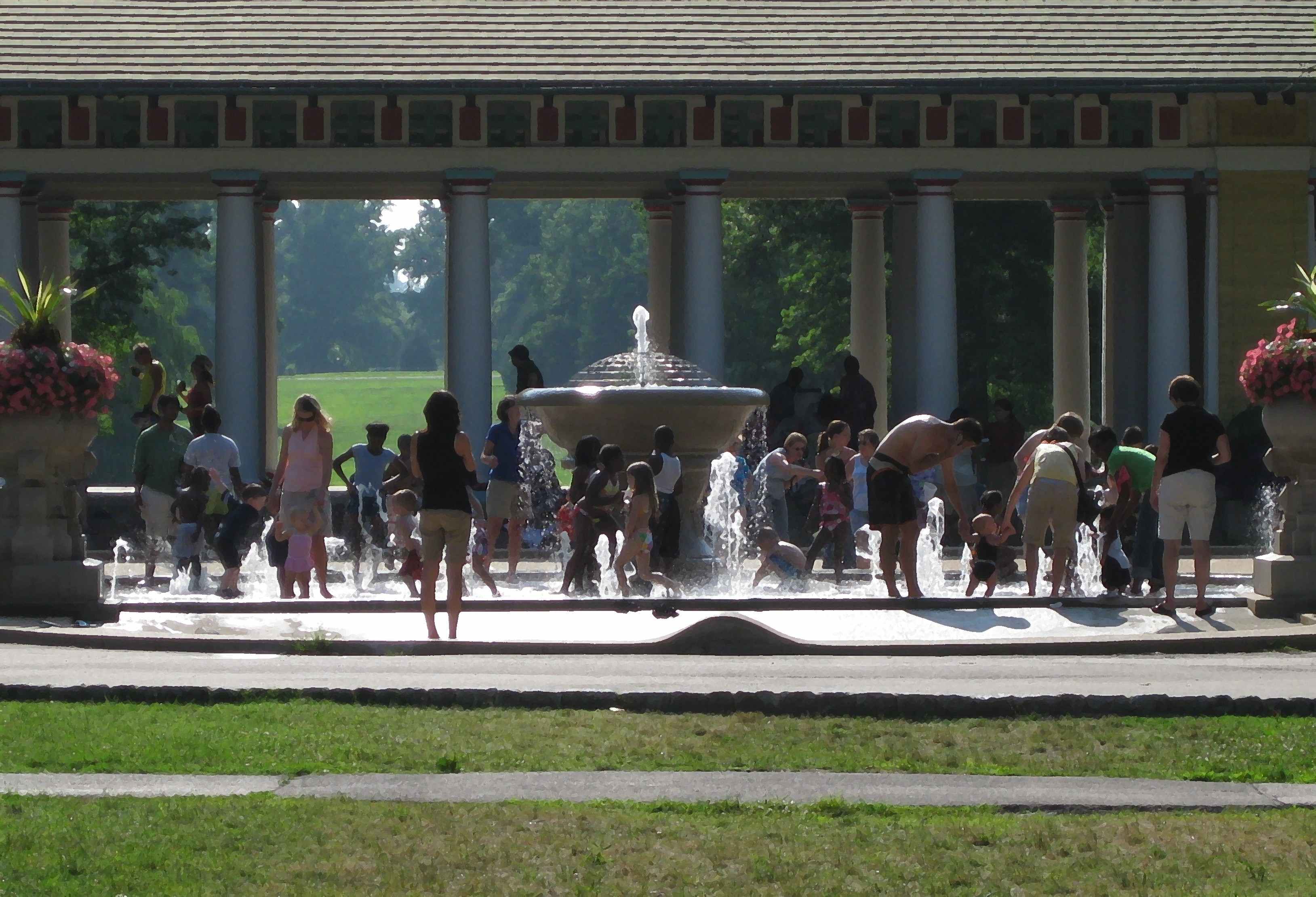
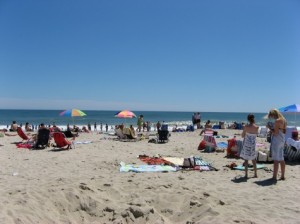
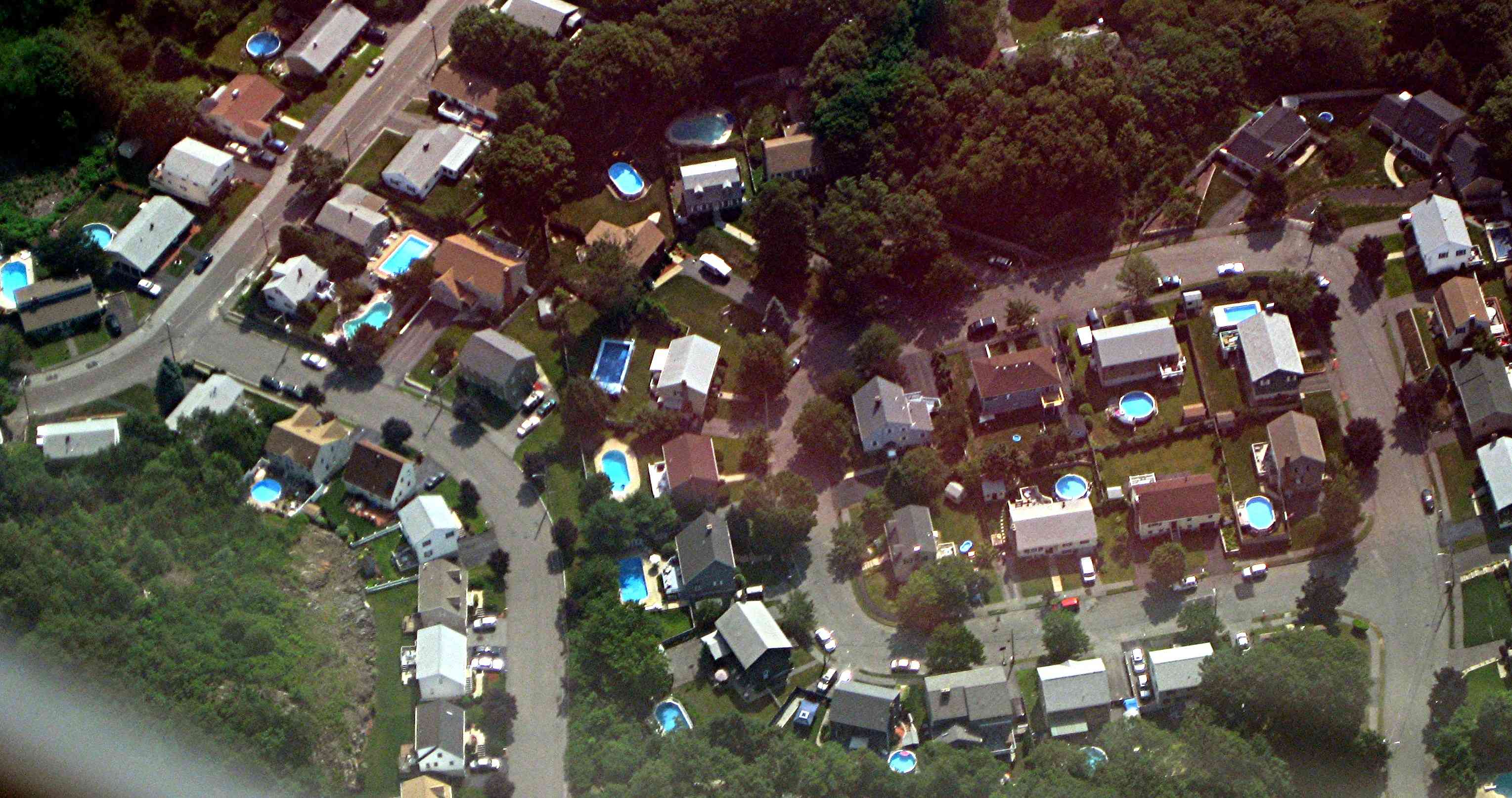
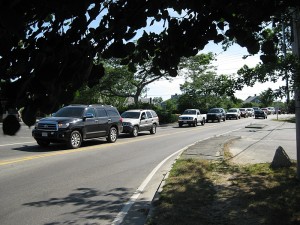

You deserve one of these.
Ben. In your pool advertisement, I notice that the little kids are cloistered as far as possible from the adolescents.
But why bother with the big pool you've suggested? Why not, instead, take a couple laps in THIS inflatable pool? http://www.kidstoychest.com/images/wet58480lg.jpg
First the pools. Next the guns. And then the workers will unite!!